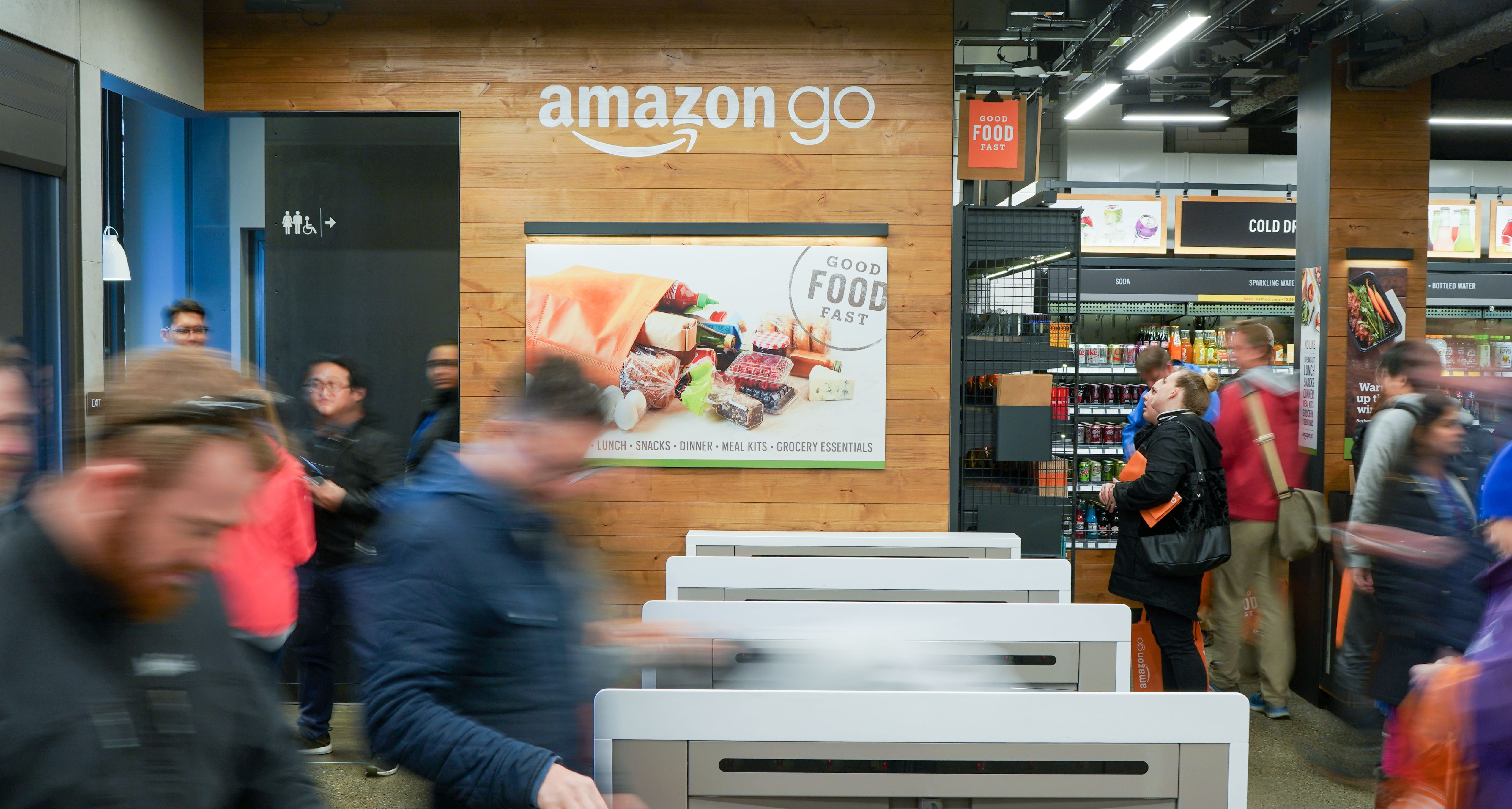
This Monday 22 January, cashier-less store Amazon Go opened its doors to downtown Seattle. Compact at just 1,800 square feet, the outlet offers “delicious ready-to-eat breakfast, lunch, dinner and snack options” as well as meal-kits and alcohol.
While offering all the hallmarks of a standard grocery store, Amazon Go is a shop-front of the new age. No shopping carts, no checkout – every item that a customer chooses goes straight into their bag, and is charged to their Amazon account.
“Our checkout-free shopping experience is made possible by the same types of technologies used in self-driving cars: computer vision, sensor fusion, and deep learning,” says Amazon.
Using what it has dubbed ‘Just Walk Out Technology’, or artificial intelligence in plain terms, Amazon tracks shoppers with numerous cameras hooked up to the ceiling. The AI determines what each customer has picked up off the shelves, putting the items straight into that individual’s online shopping basket.
What about the workers?
Naturally, the move towards AI has sparked worries that previously human jobs are being displaced by technology. This January, Amazon was reported to have 45,000 robots in its warehouse, which is an increase of 50% from the beginning of 2017. For the 3.5mil cashiers in the US, Amazon Go might generate some anxiety.
Rather than doing away with employees, Amazon maintains that it is just changing their roles. While cashiers may be redundant in an Amazonian vision of the future, this has been counterbalanced by the new jobs created by AI systems, such as technical troubleshooting.
“Our great team of associates works in both the kitchen and the store to prep ingredients, make our ready-to-eat-food, stock shelves and help customers,” says the retailer.
Catching on
While Amazon may be using the most advanced technology consumers have yet seen, they are not the first to take humans out of the equation.
China already has a few of its own examples: staff-less convenience stores such as BingoBox, a company which received $80mil in funding last year, is just one of several start-ups to pop up across the nation.
Instead of using AI, BingoBox labels each item with RFID tags. Rather than ‘Just Walking Out’, consumers must complete self-checkout before leaving the premises. Being slightly behind Amazon’s highly technical system doesn’t seem to have held BingoBox back, with 200 outlets opening across 29 cities in China since the company’s launch in 2016.
Stockholm-based Wheelys has also had their crack at the Chinese market, testing its own autonomous store in the country. Offering their brand on a franchise model, Wheelys allow consumers to open their own AI powered stores.
Amazon have so far kept their cards close to their chest on whether they intend to open more Amazon Go stores, or sell their technology onto other retailers. What the opening of Amazon Go does mark is the company’s increased interest in bricks-and-mortar structures alongside their internet empire.
A future of staff-less high streets and city centres may still be someway off. Even so, it is still very much on the minds of many businesses, as retailers grapple for a piece of the AI pie.
Emily Lewis
Picture: Rex Features
